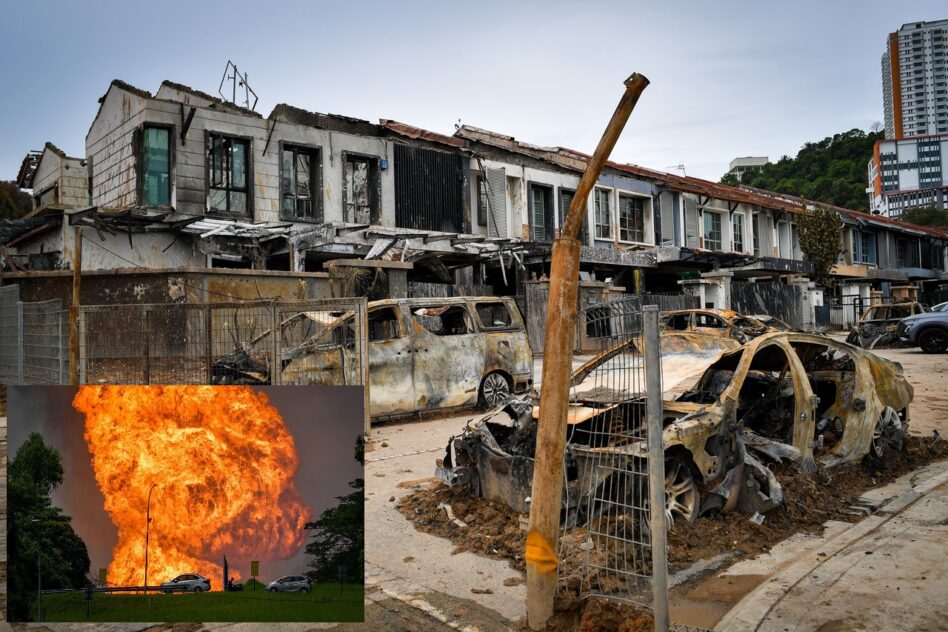By Sulaiman Saheh
WITH many gearing up for the start of a new decade and making plans for the future, things came to a crashing halt as in less than six months from its estimated conception, the Covid-19 pandemic has swept across the globe – catching most world leaders by surprise.
From the city of Wuhan in China’s Hubei province to just short of 200 countries worldwide, Covid-19 is by far the biggest scare in the eyes of today’s society.
From an estimated 266 cases of the coronavirus by the end of 2019, the World Health Organisation (WHO) has declared the number of cases to be at a staggering 1,210,956 on April 6 – surpassing the million mark in less than six months. Of the confirmed cases, 67,594 have died with America, Italy and Spain in the top three casualties’ list.
Economy-wise, losses and disruptions are felt within and without borders as various countries have taken to action in the form of lockdowns and movement control orders to prevent further spread of Covid-19.
Malaysia announced its Movement Control Order (MCO) for March 18 to 31 but after observing escalating numbers in new cases confirmed, the MCO was extended to April 14. Then on April 10, Prime Minister Tan Sri Muhyiddin Yassin further extended the MCO by two weeks to April 28.
During the MCO period, the country saw virtually a freeze on most forms of business and social activities with the exception of essential goods and services. Some Malaysians view this sudden quiet period as a chance to rest and recuperate at home whilst others despair at the financial loss inevitably occurred due to business halt.
But some businesses are still on the go and for most non-essential corporate staff, work-at-home is the way to go. Yet, from a real estate perspective, how has this global pandemic and partial shutdown affected the market – a market that is quintessentially physical in the products offered and consumed?
Within the real estate market, the first few sectors to have felt the impact almost immediately from the escalating pandemic were the hotel, F&B and retail sectors.
The Malaysian Association of Hotels (MAH) has stated 170,085 cancellations were made as of March 16 with a loss of RM68 mil but more concerns were felt as there is no end in sight. MAH foresees a doubling in losses by the end of 2020.
In March, the Ministry of Tourism, Arts and Culture had officially cancelled the Visit Malaysia 2020 campaign to prevent the spread of Covid-19 and in its place, a new campaign will be introduced.
The ministry, too, reported an estimated loss of RM9 bil in the first quarter of 2020 for tourism industry players such as hoteliers, travel agents and F&B businesses. Though major hotel chains may be able to prevail financially in such a difficult period, smaller budget hotels which rely on daily if not weekly bookings to stay afloat are at risk of closure if close-to-zero demand continues any longer.
The likes of Airbnb and homestays are also heavily affected as movements are outright restricted for at least a month, notwithstanding demand that is already generally low.
For the commercial sector that is already going through a tough time of gaining and maintaining demand, sudden business slowdown and temporary closure periods are adding more salt to the wound.
With current tenants facing hardship in making profits and potential entrants pulling back out of economic fear and safety, office buildings and shopping malls face even greater challenges to surviving the recessive year thus far.
For the Klang Valley, occupancy rates for shopping malls are faring marginally better than purpose-built offices at above 80% whereas the latter has gradually gone down to 77% but regardless so, vacant spaces show no major signs of decreasing as supply continues to grow – vacant spaces at 12 million sq ft for shopping malls and 32 million sq ft for purpose-built offices as at 3Q 2019.
This pre-existing oversupply symptom does not bode well for how things will fare for the commercial sector post-pandemic as there is no guarantee things will be business as usual.
Moving to the biggest sector in Malaysia’s property market, the residential sector is expected to experience a fall in activities not only due to the MCO but also from the unexpected financial disruptions and possible employment losses for the unfortunate ones.
Those with ongoing mortgages are forced to re-strategise their financial planning for the next six months or more as funds have taken a sudden shift in priority though Bank Negara Malaysia (BNM) has announced a six-month moratorium on repayment of loans and financing to help ease the burden.
For others who had been planning to buy a house in 2020 but are still financially shaky, it seems the home ownership dream will have to take a back seat amidst troubling times.
Yet for those in planning and are financially well prepared, this may be the moment to seal the deal as interest rates are at a low 2.5%, thanks to BNM’s reduction decision – the lowest since 2010.
On the developers’ side, they have taken a step back with new launches and are shifting their focus to current projects as a way of adapting to the current market gloom. Whilst local buyers take an even more precautionary tone to spending and to “wait and see”, any potential interest by international buyers would have been cut short by the temporary border restrictions.
Real estate agents may need to immediately refit themselves into today’s environment by replacing physical property visits with online-based marketing and tours as well as handle necessary documentation and communications via emails and calls.
As said, business is as usual where possible with some necessary adjustments. But overall demand by buyers and renters are expected to remain in the affordability range – even more so with Covid-19 wreaking havoc on economies.
In short, what was initially a positive-toned outlook for this year has now taken an unprecedented turn to the unknown. With the pandemic still at its peak and more countries taking the lockdown road, we may have yet to see the worst it can do to Malaysia’s markets and the best thing to do is prepare for the worst but always hope for the best.
Despite 2019 numbers coming out promisingly, there was still room for a fall back should unprecedented events take place. For 2020, Covid-19 has already made it the year to be remembered three months in. To the readers, let’s do our part to curb this fatal pandemic by heeding the words of our prime minister: stay home. — April 10, 2020
Sulaiman Saheh is director of research at Rahim & Co International Sdn Bhd, one of
the largest real estate consultancy firms in Malaysia








